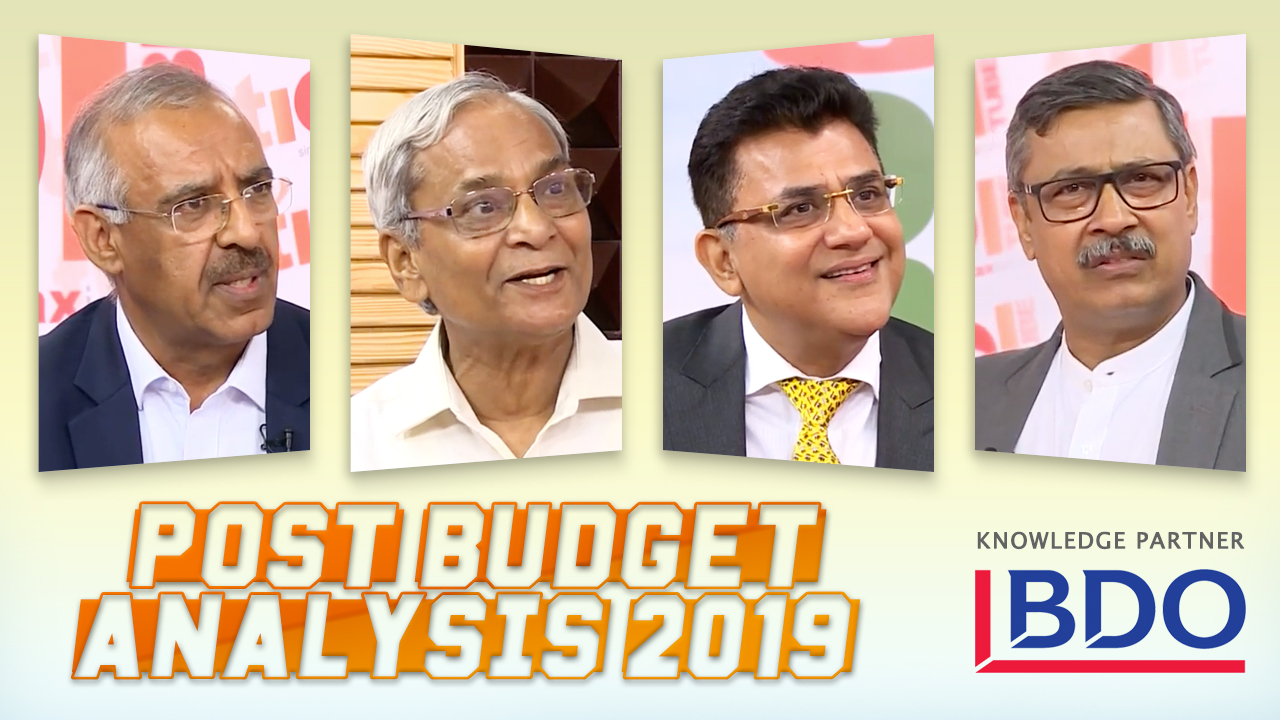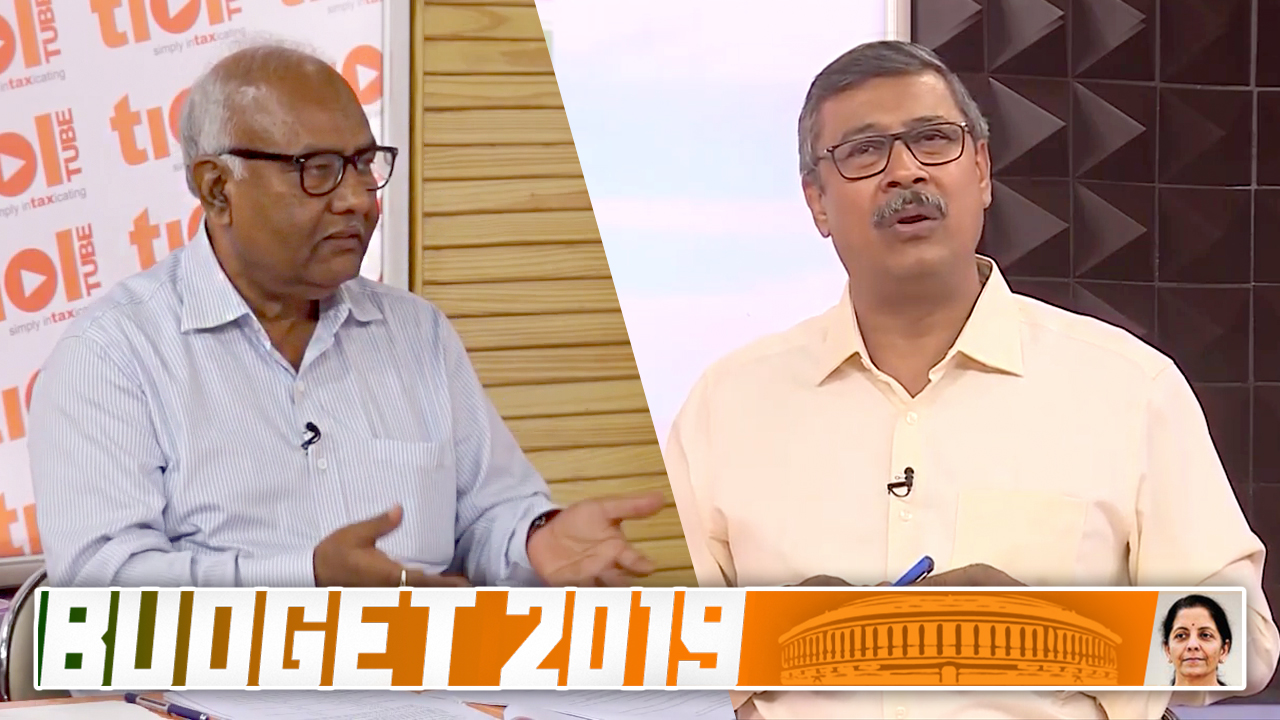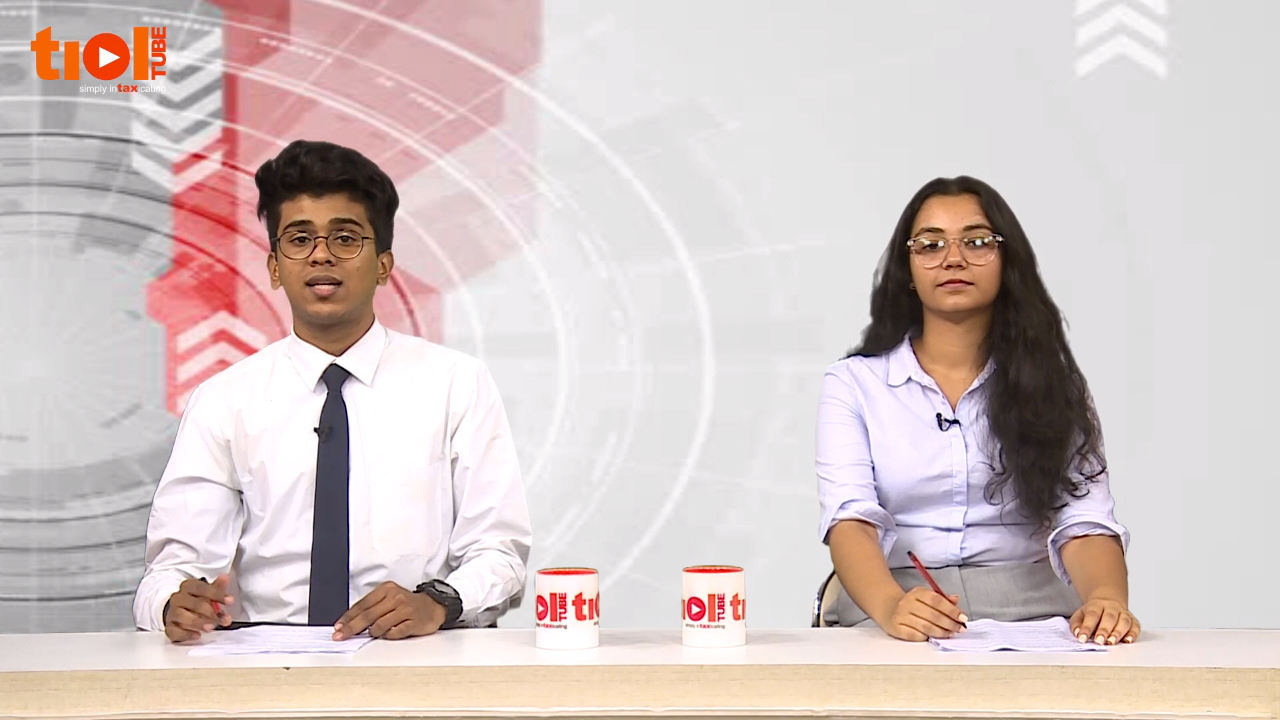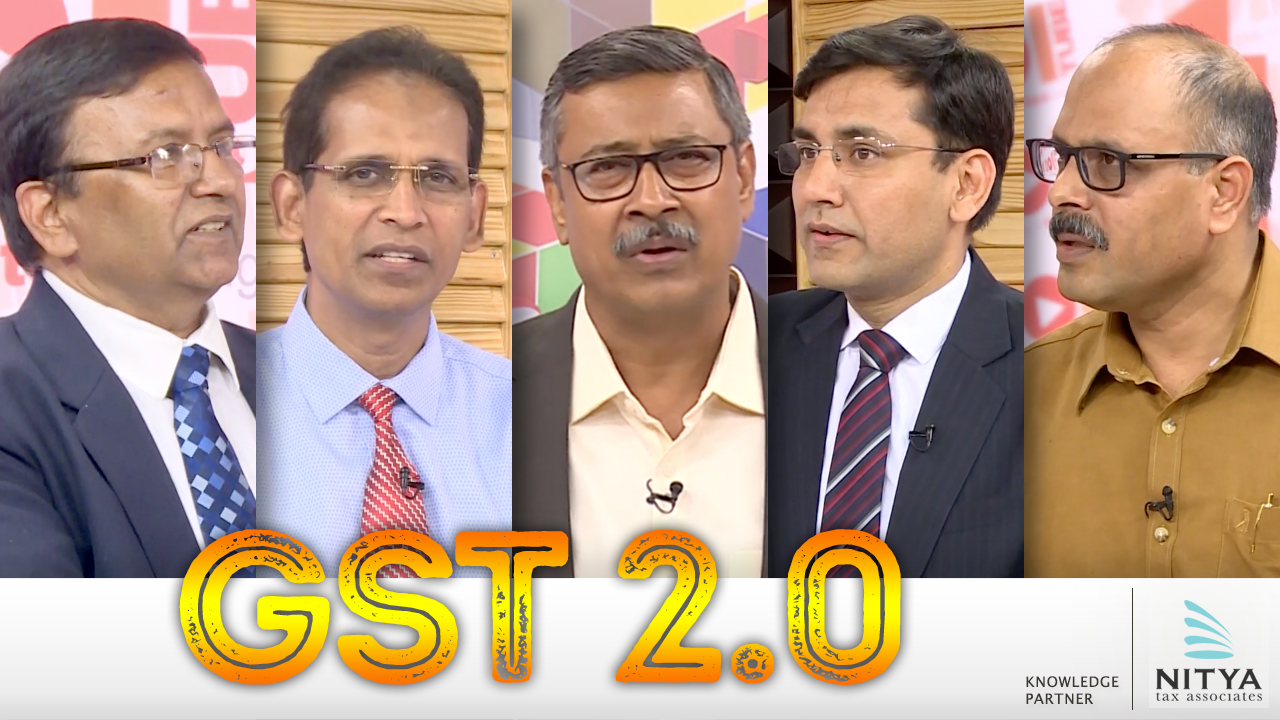|
SERVICE TAX
2019-TIOL-1929-CESTAT-MAD
Richard Felix Vs CCE & ST
ST - The issue involved relates to taxability of services of distribution of products of M/s. Conybio Healthcare (India) Pvt. Ltd. by assessee under Direct Selling Concept commonly known as "Multi-level Marketing" - Entertaining a doubt that the activities undertaken by assessee are covered by scope of definition of "BAS" as a taxable service, a SCN was issued proposing to demand service tax under BAS along with interest and various penalties - The appeal does not survive on merits since the Delhi Bench has considered the identical issue and ruled in favour of Revenue - But however, on limitation the assessee's appeal allowed on the consideration that the issue in dispute was mired in litigation and was put to rest only by Tribunal decision in Charanjeet Singh Khanuja - 2015-TIOL-1205-CESTAT-DEL in a batch of 38 appeals - While confirming that the activity involved would fall within the scope of BAS, the Tribunal however set aside the longer period of limitation - Applying the ratio of said decision to the facts of the present appeal, the extended period cannot be invoked - Hence, the proceedings and consequential demand get hit by limitations: CESTAT
-Appeal allowed : CHENNAI CESTAT
2019-TIOL-1928-CESTAT-KOL
CCE Vs National Mining Company Ltd
ST - The assessee, having its Head Office at Tinsukia, Assam has provided services to M/s Coal India Ltd. for excavation of coal during the period from 01.04.2006 to 31.08.2006 - The SCN was issued for period from 01.04.2006 to 31.08.2006 and the Adjudicating Authority has also adjudicated the demand - In Form ST-5, the period of dispute has been mentioned and it is also repeated in the Statement of Facts - There seems to be some discrepancies and misstatement of facts on the part of revenue in drafting and filing this appeal before the Tribunal - The penalty is not imposable in this case as the dispute involves interpretation of provisions of law and in view of the various decisions of Tribunal, High Courts and Supreme Court, this part of the order is sustained - Since the assessee has neither filed any cross objection against the grounds of appeal nor have appeared before Tribunal, it would be appropriate to remand the matter to adjudicating authority to consider the grounds of appeal filed by Revenue and to pass the order in accordance with law: CESTAT
-Matter remanded : KOLKATA CESTAT
CENTRAL EXCISE
2019-TIOL-1426-HC-MUM-CX
Gunnebo India Pvt Ltd Vs CST
CX - Appellant submits that the order of the Tribunal was passed in breach of principles of natural justice inasmuch as various submissions made on merits as well as limitation by the appellant were not considered while disposing of the appeal.
Held: Manner in which the impugned order of the Tribunal has dealt with the appellant's appeal leaves much to be desired - The Tribunal is an authority under the Act to decide the disputes between the State and the assessee, therefore, it is expected to deal with the contentions raised before it by the parties and give reasons in coming to the conclusion whether the contention raised by the parties before it are to be accepted or not - It is not expected of the Tribunal to ignore the submissions of the parties as raised in the written statement which are taken on record as evident from the order and proceed to decide the issue as if no submissions and/or case law in support of the appellant's case was made before it - Impugned order of the Tribunal is a non-speaking order in the sense that it does not consider the contentions of the appellant as supported by case law - It is of cardinal importance that the Tribunal passes orders with reasons - request of giving reasons also ensures that the orders are not arbitrary - Besides, it enables the parties to know the reason why their submissions have been accepted or not accepted - Further, giving of reasons enable the appellate Court to appreciate and understand the basis for the Tribunal coming to a particular conclusion so as too appropriately deal with a challenge to it - Order set aside and matter remanded to Tribunal - appeal disposed of in above terms: HC [para 6, 7]
- Matter remanded :BOMBAY HIGH COURT
2019-TIOL-1425-HC-MUM-CX
Lalitha Chem Industries Pvt Ltd Vs UoI
CX - Against o-in-o dated 10 th March 2016, petitioner had filed an appeal before Commissioner(A) beyond the period of condonable delay of 90 days and which, therefore, was dismissed as time barred; this order was upheld by the Tribunal on 21.11.2017 - Petitioner submits that demand in the present case was based upon the statement of the employees and the job workers, which hardly constitutes any positive evidence on basis of which the demand could not have been confirmed; that the Assistant Commissioner failed to take into account the Notification No.214/86-CE which provides exemption to the job work in respect of goods manufactured by them on job work subject to the condition that the principal manufacturer would use the said processed material in the manufacture of final products, cleared on the payment of duty.
Held: Contention as raised, cannot be regarded as a contention within the scope of judicial review as explained by the Full Bench of the Gujarat High Court in Panoli Intermediate (India) Pvt. Ltd. - 2015-TIOL-1556-HC-AHM-CX-LB - same may have warranted some examination in the exercise of appellate jurisdiction, but not in exercise of powers of judicial review - petitioner delayed the institution of appeal and, therefore, cannot expect that High Court converts itself into an appeal court whilst exercising powers of judicial review under Article 226 of the Constitution of India - contention as raised would require re-evaluation and re-appreciation of factual position and such an exercise cannot be undertaken in the exercise of limited jurisdiction of judicial review - Tribunal order is dated 21.11.2017, petition was however, instituted only on 29th September 2018 and there is absolutely no explanation for inordinate delay in the institution of the petition - petitioner, far from acknowledging the delay and explaining the same, does not even admit that there is any delay or laches - This is an additional ground for dismissing this petition - Petition dismissed: High Court [para 11 to 13]
- Petition dismissed :BOMBAY HIGH COURT
2019-TIOL-1424-HC-MUM-CX
CST Vs Tata Teleservices Maharashtra Ltd
CX - This appeal under Section 83 of FA, 1994 r/w Section 35G of CEA, 1944 challenges the order passed by Tribunal - On 25th June, 2019 when this appeal was listed for hearing, as is evident from question formulated by Revenue, issue relates to the valuation of service for purpose of charging service tax - Thus, appeal would not be maintainable before this Court in terms of Section 35G of CEA, 1944 as applicable to FA, 1994 - At that time, Revenue took time to take instructions and at their request, appeal was listed today under the caption 'Withdrawal' - Revenue states that they had not received any instructions from the appellant - Therefore, they submits to the order of this Court - Section 35G of CEA, 1944 r/w Section 83 of FA, 1994 clearly excludes the jurisdiction of court from entertaining appeals relating to valuation of services for purposes of amount - It is not disputed by Revenue that the issue arising in this appeal relates to valuation of services for purposes of assessment as decided by the order of Tribunal - Therefore, appeal is not maintainable: HC
- Appeal disposed of :BOMBAY HIGH COURT
2019-TIOL-1927-CESTAT-CHD
Groz Beckert Asia Pvt Ltd Vs CCE & ST
CX - The assessee is in appeal against impugned order wherein the credit on capital goods has been denied on the premise that the same has not been capital goods for assessee - On the issue of courier service, assessee has been delivering the goods to the customers/dealers through courier and courier charges borne by assessee themselves - In that circumstance, assessee is entitled to avail credit on courier service - For availment of credit on bill of entry, in the name of second unit, the contention of assessee is that although the bill of entry shows the name of second unit but the same has been used by assessee in the unit in question and duly recorded in statutory record, therefore they are entitled to avail credit - The bill of entry mentioned the name of another unit of assessee, moreover, description of goods also shows that the parts which have been imported by assessee are for unit No.2 - The contention of assessee that the description of goods is mentioned wrongly but the assessee has never approached the department for correction of description of capital goods - The credit has rightly been denied on capital goods in question to the assessee - Therefore, the credit on these capital goods is disallowed: CESTAT
-Appeal disposed of : CHANDIGARH CESTAT
2019-TIOL-1926-CESTAT-AHM
Isagro Asia Agrochemicals Pvt Ltd Vs CCE & ST
CX - The assessee have manufactured and cleared the goods to their sister concern on payment of duty on the value arrived at in terms of Rule 8 of CEVR, 2000 - The case of department is that the assessee have applied only cost of manufacture as a value and not on the basis of 115% of cost of manufacture - Accordingly, on the differential value of 15% demand was raised - Appeal can be disposed of on limitation itself - The adjudicating authority has clearly admitted that there is no malafide intention on the part of assessee as duty paid/payable is available as cenvat credit to the recipient unit and on that basis the penalty under Section 11AC, which has the some ingredient for invoking extended period, has been set aside - This categorical finding of adjudicating authority was not challenged by Revenue, therefore, it attained finality - Accordingly, demand for extended period cannot be invoked: CESTAT
-Appeal allowed : AHMEDABAD CESTAT
2019-TIOL-1925-CESTAT-MUM
CCE & ST Vs IFB Industries Ltd
CX - The department assailed the order of Commissioner (A) setting aside the invocation of extended period imposing duty liability along with interest and the equivalent penalty imposed under Section 11AC of CEA, 1944 - It is observed that the assessee's engagement in trading of goods and manufacturing has brought the dispute regarding availment of CENVAT credit on trading which is considered as exempted services, in view of explanatory note introduced into Finance Act - It can very much will be inferred that trading is not at all a service, as it is a sale of goods for which vat is applicable and as because it is not a service, it is put in the exempted category as an example that trading is not a service for which exemption is also applicable - Likewise audit report cannot be the sole consideration for invocation of extended period to demand duty and impose of penalty under Section 11AC of Central Excise Act - Moreover, application of formula for computation and arrival at a figure varies on the basis of understanding of the formula and its proper application that cannot be considered as wilful violation of the provision of the Act or Rule only on the ground that re-computation of the previous period on one occasion was accepted by the assessee and duty demand was met, since rule of acquiescence pre-supposes repeated acceptance of the same thing: CESTAT
-Appeal dismissed : MUMBAI CESTAT
CUSTOMS
2019-TIOL-1427-HC-MUM-CUS
CC Vs Atul Dalpatram Pandya
Cus - Whether the order passed by Tribunal after six months from the date of hearing, without dealing with the issues raised, submissions made, is sustainable in law, in view of judgments in cases of Shivsagar Veg. Restaurant - 2008-TIOL-579-HC-MUM-IT , Emco Ltd. - 2014-TIOL-222-HC-MUM-CX and Gandhar Oil Refinery (I) Ltd.- 2016-TIOL-2366-HC-MUM-CUS - On the last occasion the respondent had invited attention to the decision of Supreme Court in Ram Bali - In said case, the Supreme Court had held that mere delay in rendering a decision after hearing may in the absence of any prejudice may not make the order vulnerable - The appellant in response had placed reliance upon Tribunal's Order read with Order No.1 of 2010 dated 6th January, 2010 issued by the President of Tribunal to contend that the above may not have been complied with in this case - Thus, drew support of the legal maxim that "Cursus Curine Est Lex Curise" i.e. the practice of the Court is the law of the Court - Revenue on instructions fairly states that the above Order issued by the President has been complied with - Therefore, the Revenue cannot make any grievance about the same - This appeal was expedited as it primafacie appeared that issue would stand covered by decision of this Court in Shivsagar Veg. Restaurant - 2008-TIOL-579-HC-MUM-IT - However, this issue would require further consideration as the respondents have relied upon the decision of the Supreme Court in Ram Bali - Appeal to await it's turn for final disposal: HC
- Appeal disposed of :BOMBAY HIGH COURT
2019-TIOL-1924-CESTAT-MUM
Sumit Wool Processors Vs CC
Cus - This appeal lies against O-I-A which has, by a common order, upheld the order of original authority revising the classification of goods described on input as '100% polyester filament yarn' under heading no. 5402 3300 to 5606 0020 of First Schedule to CTA, 1975 on the basis of report of Deputy Chief Chemist and Textile Committee - The declared value that was re-determined to US $2.365 per kg from declaration of US $1.4 per kg on import was also upheld - The goods, though confiscated, were permitted to be redeemed on payment of fine - Penalties were also imposed on the proprietors - All four viz. the two importers and the two proprietors, challenged the impugned order before Tribunal - In consonance with decision on the other three appeals arising from the same impugned order, this matter is also remanded back to the original authority: CESTAT
-Matter remanded : MUMBAI CESTAT
2019-TIOL-1923-CESTAT-MUM
Panama Petrochem Ltd Vs CC
Cus - Assessee is in appeal against impugned order which upheld the confirmation of differential duty on finalization of assessment under section 18 of Customs Act, 1962, on imports covered by 124 bills of entry - The dispute pertains to the value to be adopted for assessment of liquid bulk cargo - The bills of entry were finalised by levying duty on value in the invoice which reflects the quantity loaded at the port of origin - The Supreme Court examined the several provisions in Customs Act, 1962 and, based on the legal position that levy of customs duty is restricted to goods that are brought into India, that the taxable event is the import of goods, that import duty is not leviable on goods that are lost, pilfered or destroyed, and that the measure of value of imported goods cannot be delinked from the contextual of time and place of import, has held that the duty liability is to be ascertained only on the quantity received in the shore tank - The effect of judgement is to nullify the circular relied upon by lower authorities - Consequently, the impugned order is set aside: CESTAT
- Appeal allowed : MUMBAI CESTAT |








